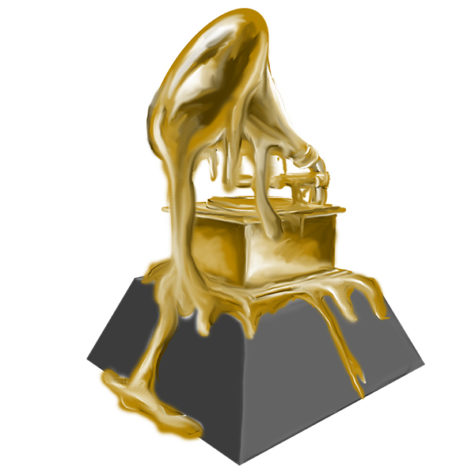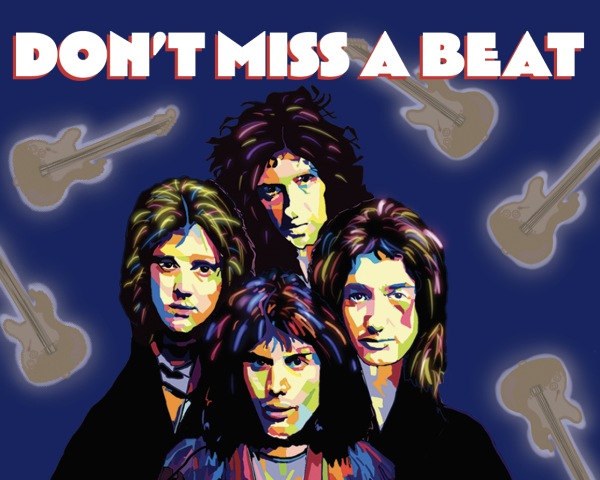All that Glitters is NOT Gold
How did the biggest music awards show in the world lose its credibility?

The highest accolade that any actor or actress can receive is an Oscar. The award recognizes their outstanding performances and is given by an elite circle of well-respected members of the film industry. Logically, musical artists deserve a similar endowment to reward them for their work, right? The question is rhetorical, and yet the decorations handed out to musicians are infamously tainted with ridicule, both from artists and the public.
The most “esteemed” of these various music award ceremonies is the Grammys. The first ever Grammy awards ceremony was held in 1959. The idea for this awards show was concieved by a group of music executives who wanted to produce a show like the Oscars or the Emmys, both of which had great ratings and were largely respected. Since then, the Grammys have shifted their focus away from recognizing achievement, and onto a slew of other concepts that have left music fans scratching their heads in confusion for decades.
Currently, the most publicized parts of the Grammy ceremony are the live performances. Specifically, collaborations: every year, the Grammys pair two artists together to mash their songs up or to perform each other’s songs live on stage. When these work out, they are awe inspiring; Elton John and Eminem famously duetted Eminem’s “Stan” in 2001, with John accompanying Eminem on piano and singing the choruses. These unlikely collaborations by artists are uniquely powerful performances and help artists to reach across the genre divide and pick up new fans.
However, when Grammy performances do not work out, the ceremony itself tends to be scoffed at. Outkast’s 2004 performance of their smash-hit “Hey Ya” was berated for its inappropriate portrayal of Native Americans, which included a tipi that dancers funneled out of as well as Native American inspired headdresses. CBS issued an apology after the ceremony. Two years ago, Madonna’s performance, which made use of satanic imagery, was universally panned. The focus on performances takes away from the concept of the Grammys; they begin to feel more like a concert than an awards ceremony, judged for the performances rather than the esteem of the award. Furthermore, some critics claim that the Grammys show favoritism towards the artists who agree to perform.
As a possible result of the lack of focus on the awards themselves, the achievement of winning itself is largely disregarded by the music community. Eddie Vedder of Pearl Jam, after winning an award for Best Hard Rock Performance, famously stood on the Grammy stage and said “I don’t know what this means. I don’t think it means anything… That’s just how I feel.”
While this might just seem like a fit of Seattle Grunge nihilism, Vedder’s claim represents how many artists feel. Dave Grohl, lead singer of the Foo Fighters, who has won 15 Grammys, has been known to use one as a doorstop. Frank Ocean purposefully chose not to submit his 2016 album Blonde for consideration, which shocked the public. There are countless other examples of artists who feel that the Grammys are not worth trying for.
This disregard for the honor of a Grammy could possibly stem from the many “snubs,” or times when the Grammys picked albums or artists that did not truly deserve the award. In 2013, Macklemore and Ryan Lewis won Album of The Year for their record The Heist, which beat Kendrick Lamar’s good kid m.A.A.d. city, upsetting many music critics as well as fans. Kanye West, an artist who has time and time again shifted the course of rap music with his albums, has yet to win an Album of The Year. Grammy snubs go back almost to the ceremony’s inception. In 1966, the award for Best Rock and Roll Recording went to The New Vaudeville Band’s novelty song “The Winchester Cathedral” instead of other nominees like The Beach Boys’ “Good Vibrations” or The Beatles’ “Eleanor Rigby.”
The problems addressed here parallel the problems seen by the other music awards shows. The MTV Video Music Awards have deteriorated into a “who can be the most outrageous” show, favoring shock over substance. The 2016 AMA’s (American Music Awards) had abysmal ratings with only 8.2 million people tuning in, an all-time low in the show’s history. The fact remains that musicians are not getting the awards ceremony they deserve. Even though the musicians themselves might seem indifferent, the Grammys may very well be heading down a path to cancellation.






